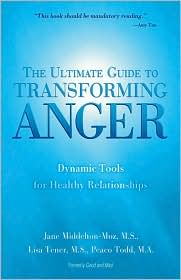As promised, here’s another important insight from the Harvard Medical School CME publishing course.

I’ll share something Regina Brooks, from Serendipity Literary Agency shared with me. Over dinner at Stephanie’s on Newbury Street, Rusty Shelton, Regina and I discovered just how much we had in common when we all ordered the same thing on the menu (home made pasta with wild mushrooms, vegetables, crab and parmesan). Clearly, we all have good taste (at least in my opinion).
Regina said that editors at publishing houses are not taking chances on anything risky. They’re nervous that if they come to the editorial board meetings with something that sounds a little out-of-the-box, they’ll be the next one to be let go. They’d rather bring fewer projects to the table than risk bringing something that doesn’t look like a sure thing.
What does that mean for you if you’re looking for a traditional publisher?
1. Demonstrate that your book has much in common with related books that have done well in the past (though make sure your book adds something new to the field (new research, new information, a new angle, a different niche, special features–but nothing too wacky!).
2. Demonstrate a large market for your book. Do your research. Give numbers and sources of those statistics.
3. Make sure your writing shines. And no typos, please. Hire an editor if you need to.
4. Demonstrate you can market the book effectively by establishing a powerful author platform (e-mail list, website/blog traffic, speaking engagements, publicity, internet presence, etc.) and creating a kick-tush marketing/promotion plan. You may need to develop your author platform more.

The good news is that all the extra research, writing and platform development will, ultimately, help you reach a larger audience and sell more books. How great is that?



It’s number 4 – the author platform – that seemed to me to be the real problem when I started looking into how to get my book published. I couldn’t think of how to get myself known without first having a book published. It seemed like a catch 22.
I have been working on developing my author platform for a few months now. I feel that it has been time well spent. I haven’t yet got much attention for my efforts. I am, however, learning to hone my message. To get people interested, I have to boil down a book length idea to something much shorter. This has been hard for me but will yield dividends. I will be better able to promote and eventually sell my book to a publisher. I also think I will even write a better book now that I have a clearer focus for my work.
I almost decided to ignore the advice to build an author platform. I’m glad I didn’t.
Good for you, Stephen. It is much easier to live under the delusion that our books will sell themselves. And one great thing about the process of seeking an agent or publisher is that it gives us the opportunity to get real. You are not alone in being tempted to ignore the advice about platform building–and you are right that it will pay big dividends in every way that you, instead, have been working on your platform and honing your message. Good luck! And thanks for all your great comments and being part of the conversation.
Dear Lisa:
Your “risk” headline caught my eye, and I’m glad it did: this was a great post. Publisher risk aversion is the biggest challenge facing authors today.
The “gatekeepers,” i.e., publisher acquisition editors, prefer to look backwards rather than forwards. They look for trends and numbers, rather than hunches.
When I proposed a Microsoft Office for Windows for Dummies to IDG way back when, even though it was obvious that Microsoft Office, bundled together, was going to take down Lotus and WordPerfect, it took them 6 months of hand-wringing, because “there was no track record for books about bundled software programs.”
The only thing I’d like to add about Stephen’s program is to encourage him to be consistent in whatever platform he chooses and create a “content refreshment system” to keep his blogs, or whatever, constantly fresh and relevant.
Great blog, Lisa
Roger C. Parker